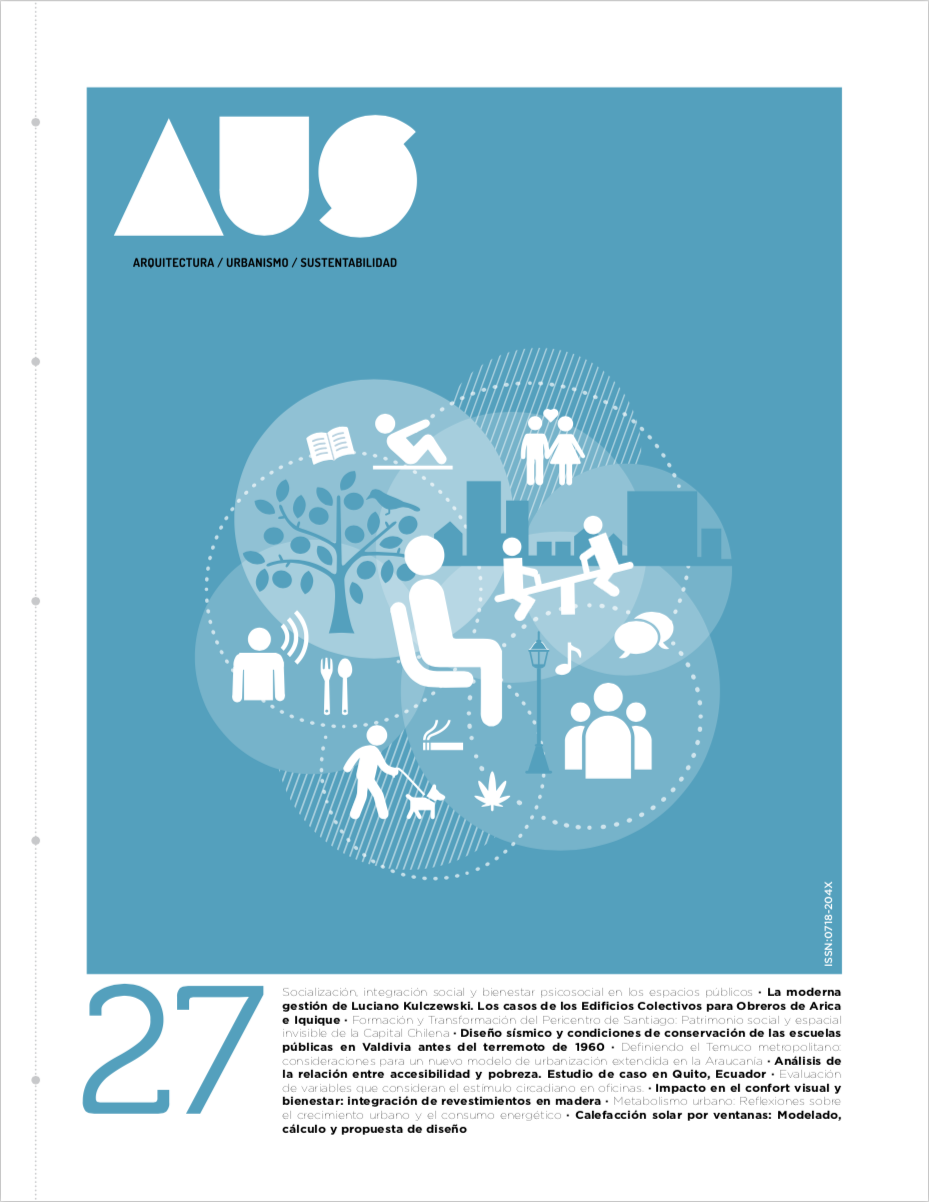Defining Metropolitan Temuco: Considerations for a new extended urbanization model in la Araucania.
Main Article Content
Abstract
Metropolitan areas are defined as densely populated areas characterized by conurbation and a capacity to expand towards the periphery. Technically speaking, Chile has three metropolitan areas: Valparaiso, Concepcion, and Santiago. Such definition, however, minimizes the role of variables such as migration, mobility, and the labor market in the establishment of a functional metropolitan area. This work is aimed at discussing the existence of a functional metropolitan area in Temuco. Processing census databases and social statistics, in addition to a descriptive and relational treatment of the aforementioned variables, the work displays the way in which Temuco –as a metropolitan area– impacts communes with high levels of migration and mobility. This changes between 2002 and 2012, moving from a concentrated and immediate area of influence to a decentralized and atomized one, thus extending Temuco’s area of influence to more remote areas.

